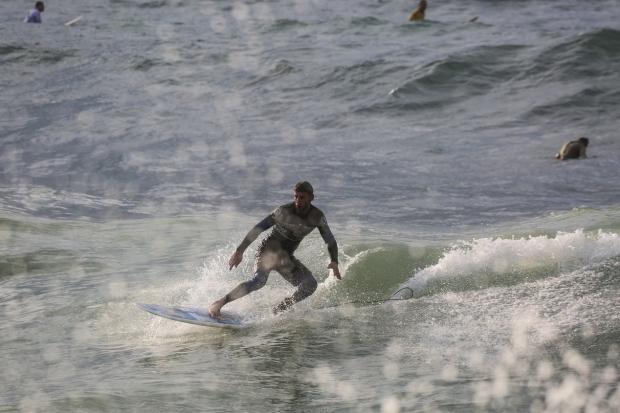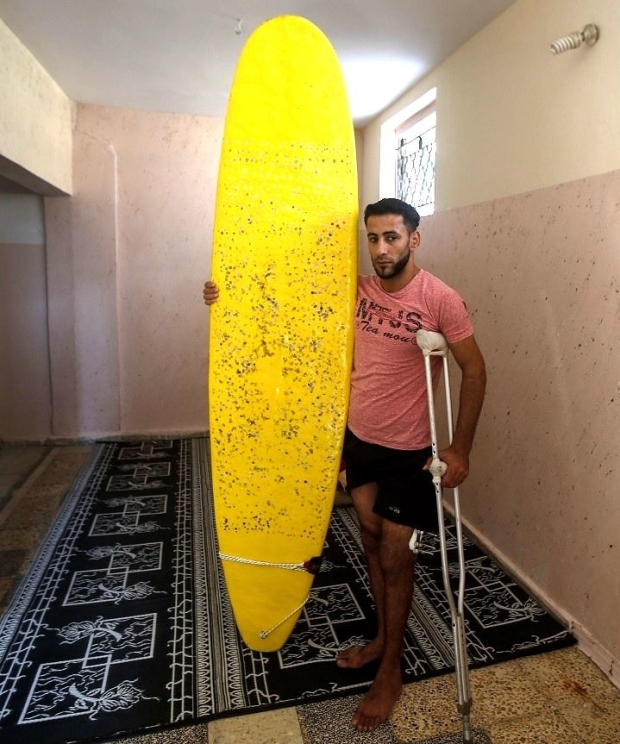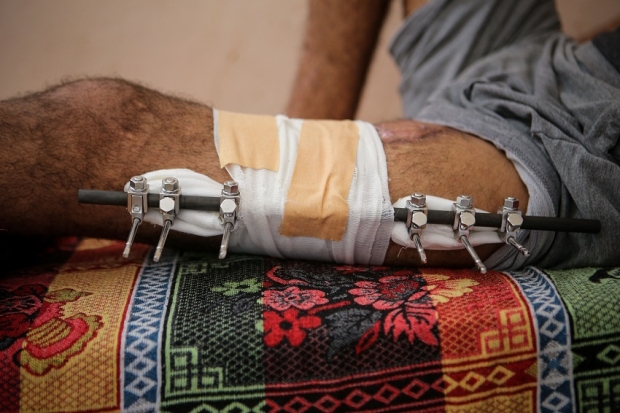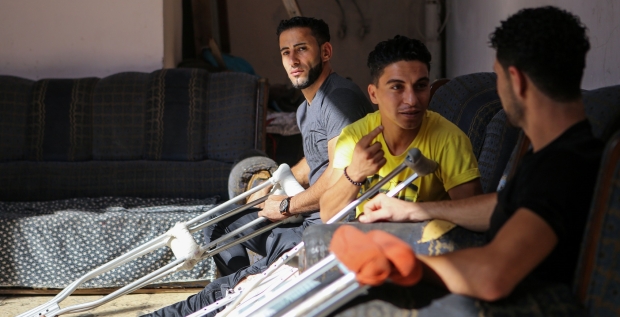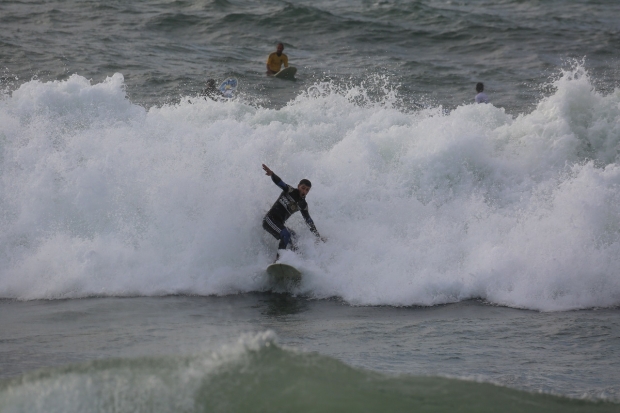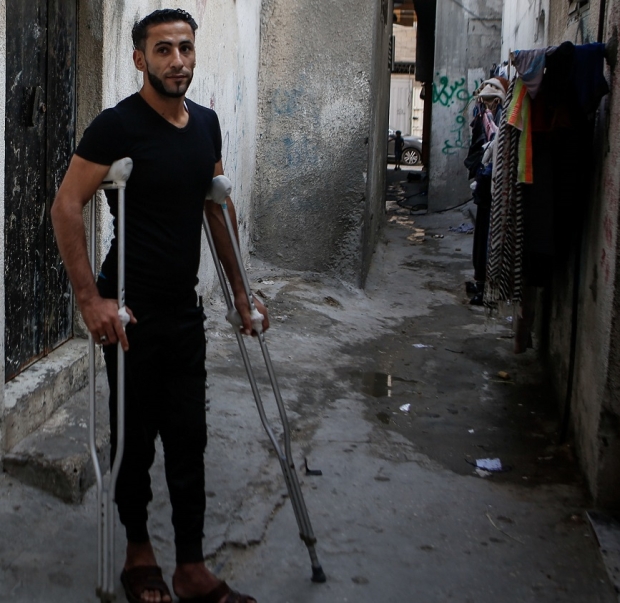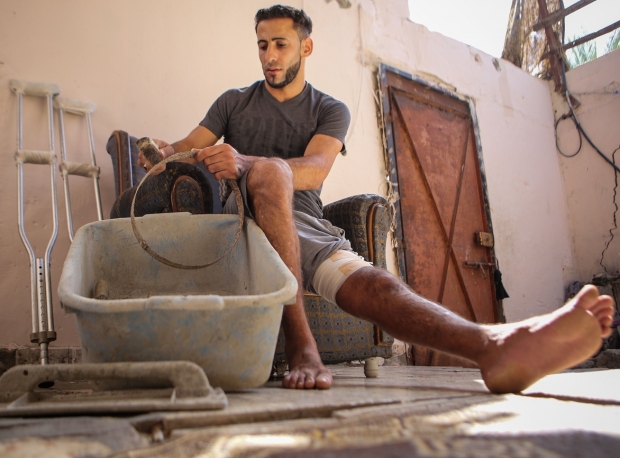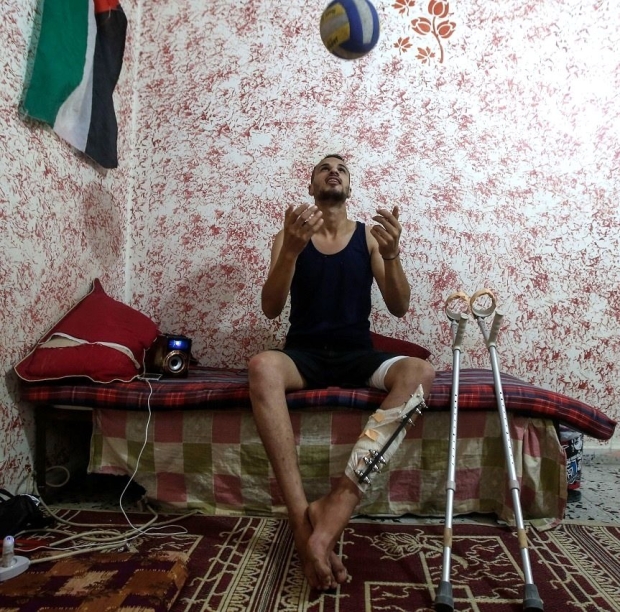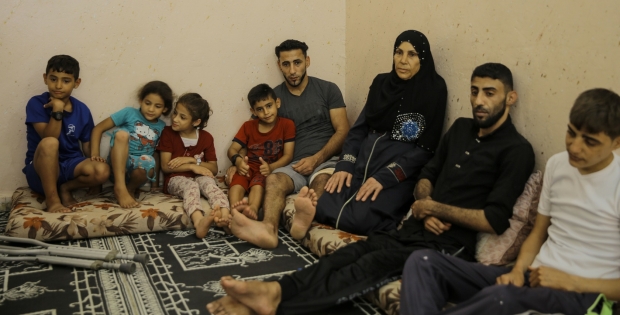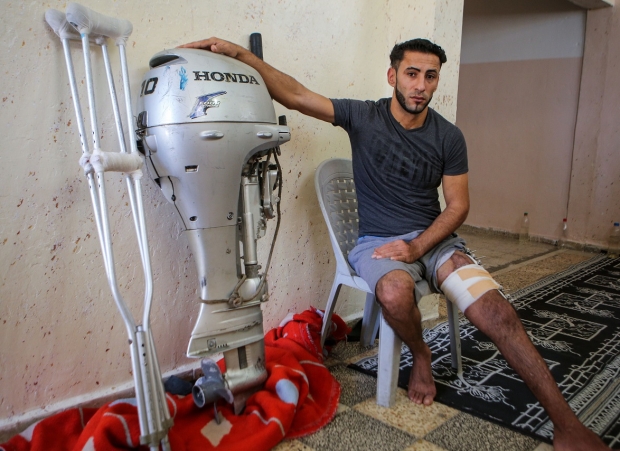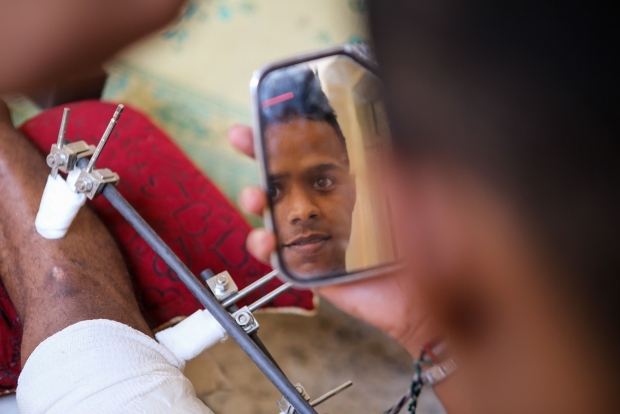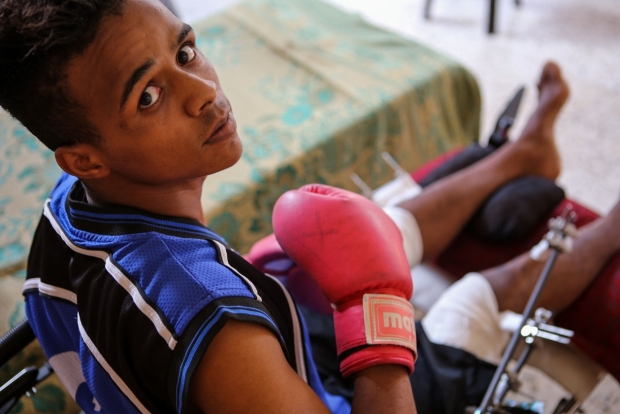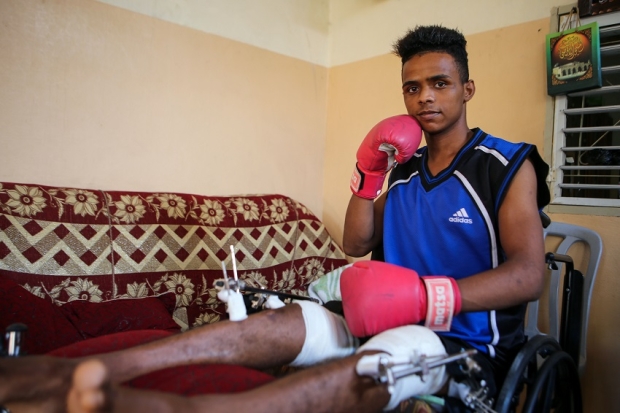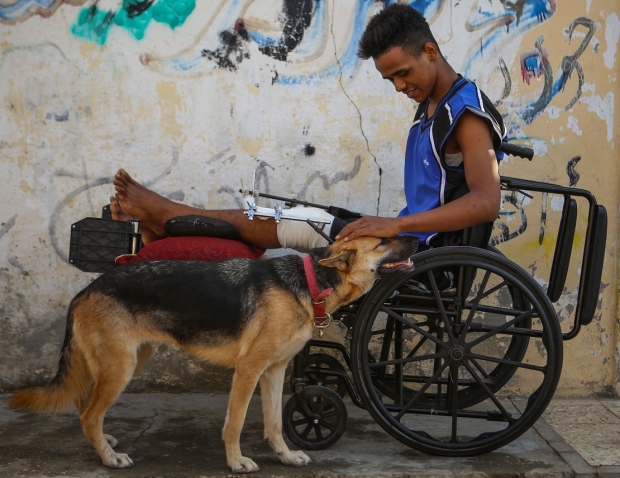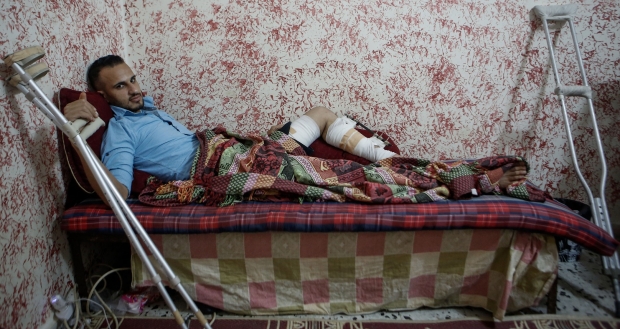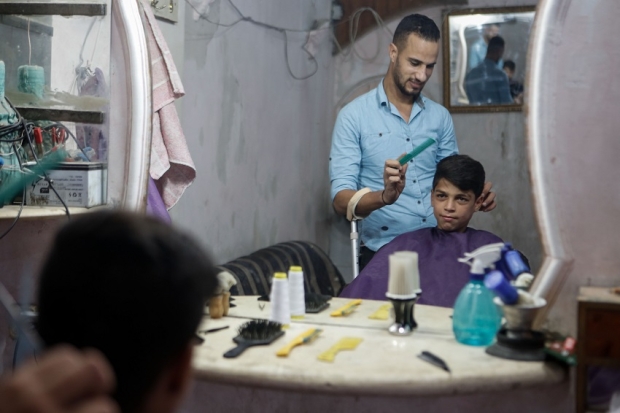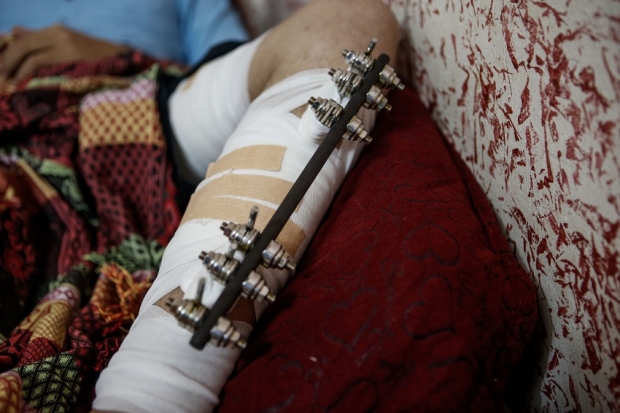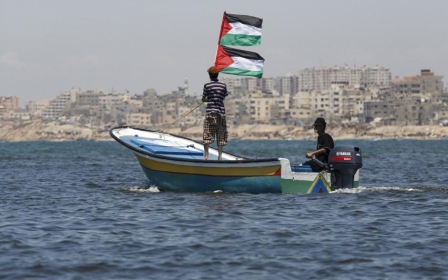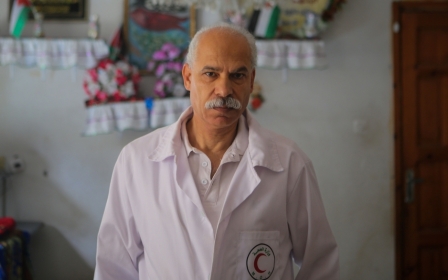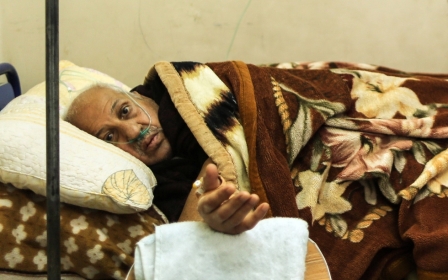Shattered limbs, broken dreams: Life for Gaza athletes after surviving Israeli bullets
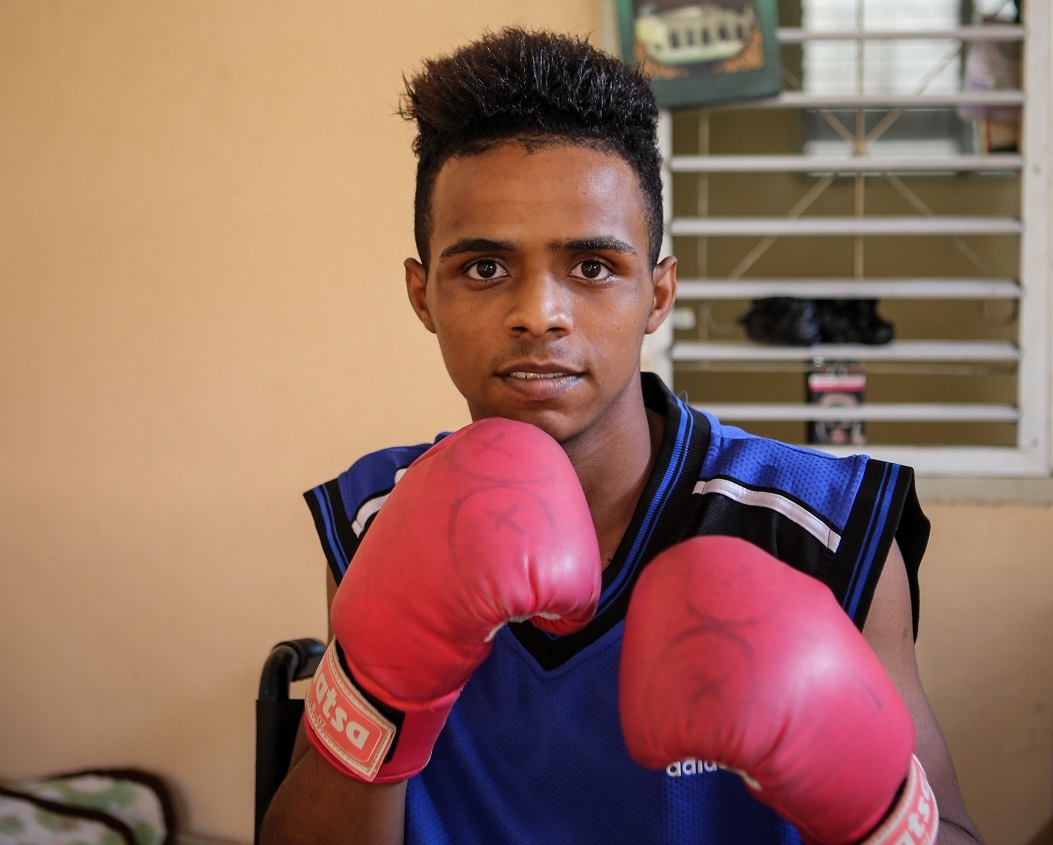
GAZA STRIP – When Raed Jadallah rode the waves of the Mediterranean sea on his surfboard, he was able to transcend the limitations placed on his life - the ones forced upon him because he is a Palestinian living in the besieged Gaza Strip.
During some stolen moments of time, the 26-year-old surfer would leave strife behind on Gaza's shore.
I do not care about my injury, I will recover sooner or later ... but will I be able to surf again?
- Raed Jadallah, surfer
The demonstrations call for an end to the 11-year Israeli-led blockade on Gaza and for Palestinian refugees' right of return to the lands their families were forced to flee during the establishment of the state of Israel in 1948.
A bullet struck Jadallah in his left thigh as he stood about 150 metres away from the fence. He now depends on crutches to walk.
"I am sure the sniper could easily recognise that I was just peacefully standing there. I did not even have a rock in my hand."
When I surfed, I forgot about everything ... All you think about is how you will catch another wave
- Raed Jadallah, surfer
Tensions have soared in Gaza since 30 March, when Israel met largely peaceful mass protests with lethal force, killing at least 171 Palestinians, including medics and children. One Israeli soldier has been killed.
According to Ashraf al-Qedra, a spokesperson for Gaza’s health ministry, of the nearly 18,000 Palestinians who have sustained injuries since the Great Return March protests began, over 5,000 were injured in their lower limbs - including athletes who suffered from permanent and long-term disabilities.
Jadallah says the Israeli snipers targeted the protesters' lower limbs to prevent them from walking again.
'Something I lived for'
Jadallah started surfing when he was only nine years old. With his house located near the beach on the nothern coast of Gaza, he found refuge in the Mediterranean sea.
[Surfing was] the only thing that gave me a reason to wake up in the morning
- Raed Jadallah, surfer
Soon after, he started participating in local competitions organised by local surfers where he would sometimes win the top prize. Although he still had "a long way to go," Jadallah said he had been training intensely in order to compete in the International Surf Festival next year.
"If I were at work and knew the sea was high, I would take leave and ignore everything only to go surfing," Jadallah, who works in construction, said.
"I fell to the ground, and all I could see was the sky. People were screaming and talking to me but all I could think about was what I would do if I lost my leg," he said. "The first thing I did was move my toes to make sure I did not lose my foot, and I could feel them move. Only then did I feel relieved."
"My life has completely stopped. I have been waiting for the past five months to travel for treatment, but there is an overwhelming number of urgent cases that need exit permits," he said.
What would you do if the only thing that gave you life was taken away from you?
- Raed Jadallah, surfer
"What would you do if the only thing that gave you life was taken away from you? I do not care about my injury, I will recover sooner or later ... but will I be able to surf again?" he said.
In 2001, Jadallah lost his younger brother, who was 15 at the time, when he was killed in protests during the second Palestinian Intifada with a bullet to his chest. His older brother, 31, was injured in 2006 by Israeli forces during an Israeli attack on the Gaza Strip when a bullet struck his back. He has been confined to a wheelchair ever since.
I fell to the ground, and all I could see was the sky. People were screaming and talking to me but all I could think about was what I would do if I lost my leg
- Raed Jadallah, surfer
"I used to be a fisherman for so many years, but I quit 10 years ago after the siege was imposed on Gaza, and started to work in construction," he said. "Israeli warships used to chase us, open fire on our boats, and damage our equipment regularly. Fishing has since then become an unworthy source of income."
A turning point
Ahmed Abumarahil dreamt of becoming a professional boxer. Before he was injured during the Great Return March protests, the 21-year-old used to train for hours non-stop each day, swinging at punching bags filled with cloth and sawdust due to the lack of resources.
"That night I kept thinking of the championship until I fell asleep and dreamed of it. So the next day, I ditched everything and went to the club," he said. "I asked how I could enrol myself in the boxing classes, but they told me they had halted them after the final championship."
Abumarahil would not take no for an answer. He gathered eight of his friends and neighbours to register in the new training course with him.
I was trying to help an injured young man, but I ended up lying on the ground beside him
- Ahmed Abumarahil, boxer
"I was willing to cover the travel expenses myself, but it was not easy, since the Rafah border was only partially open for humanitarian cases."
Abumarahil was injured in three separate incidents during the Great Return March protests. The first time was on 6 April, when he was hit in the abdomen with "a rubber-coated steel bullet".
"I was trying to help an injured young man, but I ended up lying on the ground beside him," Abumarahil said.
I only learned to be more resilient and put more effort in what I've always wanted
- Ahmed Abumarahil, boxer
The third injury, which took place on 8 June, was the one that caused his temporary disability. He was hit with a bullet in the right thigh, and about four seconds later another bullet struck him in his left leg.
"My feet have not touched the floor for more than four months now. Boxing made me feel powerful and energetic, but now I am helpless and dependent."
Abumarahil, who currently uses a wheelchair, says he would do anything to recover and practise the sport of boxing again.
One bullet was enough to turn the dream into a nightmare
- Abdulhamid Fayyad, volleyball player
"The experience did not teach me to avoid joining protests," he said. "I only learned to be more resilient and put more effort in what I've always wanted."
'One bullet was enough'
Abdulhamid Fayyad, 25, started playing volleyball at the age of 12. By using a rope hanging between two buildings in an alley as a net, Fayyad and his friends used to play for hours on end.
When I saw the hole the bullet caused to my leg, I knew I would not be able to walk again
- Abdulhamid Fayyad, volleyball player
Before he was injured on 14 May, Fayyad dreamed of representing Palestine in the FIVB Volleyball Men's World Championship and the Volleyball Nations League one day. He is one of the few lucky ones who still has a day job, as a hairdresser in his uncle's barber shop in the al-Shati refugee camp, even after his injury.
"When I saw the hole the bullet caused to my leg, I knew I would not be able to walk again."
"I do not think I will be able to play volleyball again. One bullet was enough to turn the dream into a nightmare," he said. "I used to play volleyball with my friends at least twice a week, now I cannot leave the house without my crutches."
Middle East Eye propose une couverture et une analyse indépendantes et incomparables du Moyen-Orient, de l’Afrique du Nord et d’autres régions du monde. Pour en savoir plus sur la reprise de ce contenu et les frais qui s’appliquent, veuillez remplir ce formulaire [en anglais]. Pour en savoir plus sur MEE, cliquez ici [en anglais].


